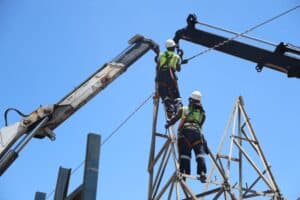The minister, in a hard-hitting replying affidavit, accused Molefe and the other applicants of creating a misleading picture that they had been acting as a responsible board.

Transport Minister Dipuo Peters has accused ousted Prasa board chairperson Popo Molefe and fellow board members of deliberately misleading the court to avoid having to repay undue payments they had made to themselves.
An urgent application by the Molefe and six former directors for their reinstatement will be heard on the High Court in Pretoria on Friday.
The minister, in a hard-hitting replying affidavit, accused Molefe and the other applicants of creating a misleading picture that they had been acting as a responsible board.
She alleged they had “deliberately misled” the court and the public about the former acting group executive head of Prasa, Collins Letsoalo, increasing his salary by 350 percent when they knew this not to be true and without even giving him a chance to defend himself.
“The have used this misleading narrative as a ruse to remove a man [Letsoalo] who has a track record of fighting corruption and enforcing compliance with the prescription governing public finance.
“The true reason for his removal from the Board is his refusal to accede to improper interference by the board.
“He [Letsoalo] has also been pressing the applicants to repay the undue payments they have made to themselves which had been found by the auditor-general to be irregular,” she said.
Judge Peter Mabuse yesterday postponed the application by Molefe and six other former Prasa directors to Friday so they could file answers to the minister’s affidavit and an application by Letsoalo to intervene as a party to the application.
Letsoalo alleged Molefe had made serious and scandalous allegations against him in the founding affidavit that tarnished his name and reputation and which he regarded as “false and malicious”.
Molefe maintained in court papers the minister’s decision interfered with ongoing investigations at Prasa, which have already uncovered fruitless, wasteful and irregular expenditure totalling at least R14 billion and would frustrate the successful outcome of the investigations.
He said the removal of the directors clearly threatened the constitutional principle of legality, the operations of Prasa, the values of transparency, openness and the continued viability and finalisation of the Prasa investigation.
It also eroded the institutional memory and intimate knowledge of the investigations and the cases against individuals and companies involved, he said.






